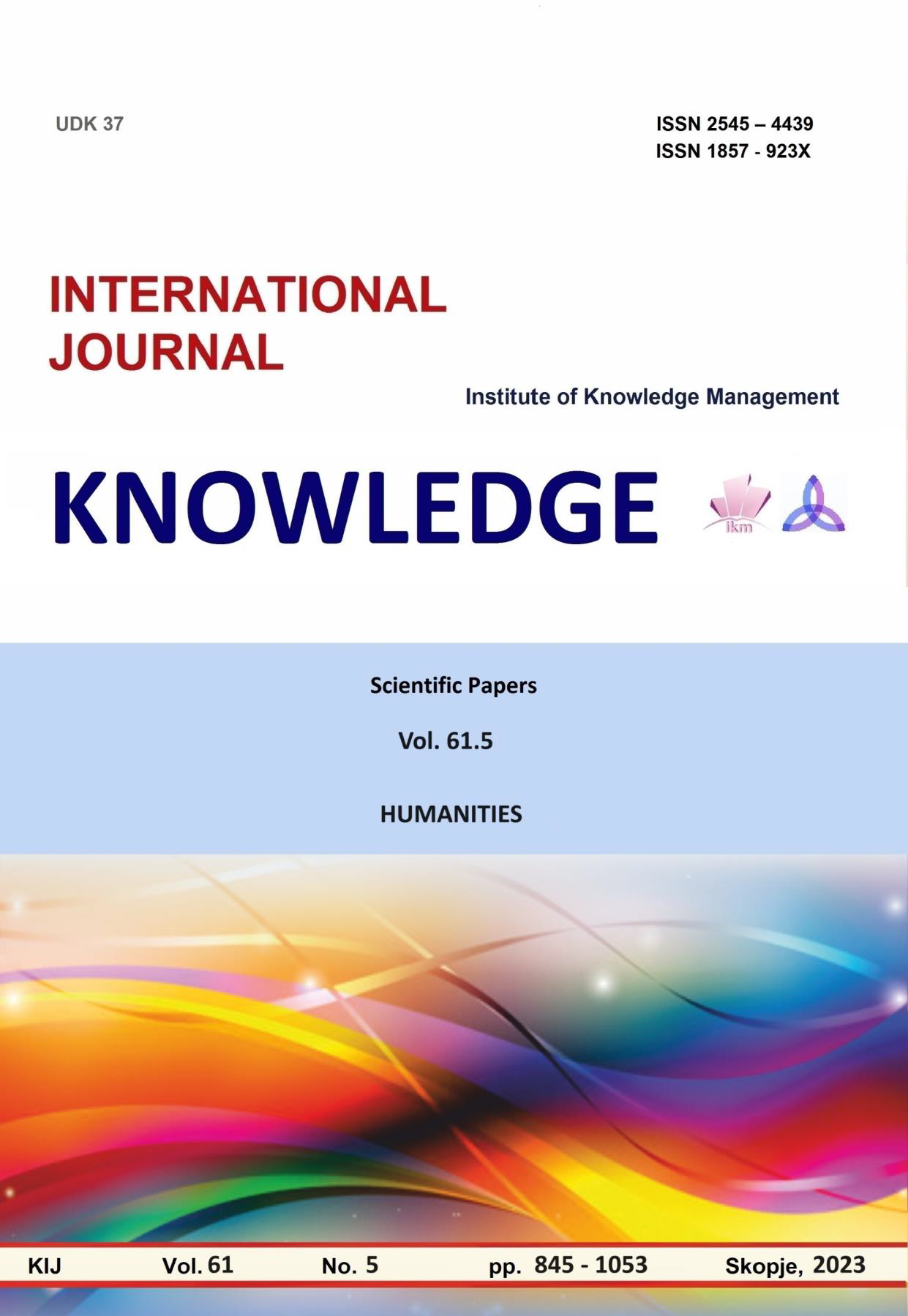ПОИМОТ HAMARTIA ВО НАРОДНИТЕ ПЕСНИ ЗА БОЛЕН ДОЈЧИН
THE TERM HAMARTIA IN THE FOLK SONGS ABOUT SICK DOJCHIN
Author(s): Trajce StameskiSubject(s): Language and Literature Studies, Studies of Literature, Macedonian Literature, Theory of Literature, Sociology of Literature
Published by: Scientific Institute of Management and Knowledge
Keywords: Tragedy;tragic flaw;epic poem;Sick Dojchin;hero
Summary/Abstract: In Aristotle's theory of tragedy, the concept of hamartia (tragic flaw) has a crucial influence on the dramatic action, as it causes the downfall of the hero from happiness to misery and is connected with the concept of an unexpected reversal of the hero's fate. The entire history of literature encompasses various interpretations of hamartia, from an unintentional mistake, failure in something, or wrong belief, to a tragic flaw or sin. In principle, Aristotle's hamartia can be used in three basic meanings: first, as a synonym for an individual error that arises from insufficient knowledge of certain circumstances that could have been known to the hero. In this case, the error itself is unintentional, and his eventual moral responsibility depends on whether he is guilty of his own ignorance. Second, when it comes to conscious but also unintentional individual wrongdoing, which is more interpreted as the hero's action in an affective state. The third meaning of hamartia is related to various types of human weaknesses, due to which the error is a consequence of some character flaw. In the Christian interpretation of the concept, the tragic flaw is identified with sin. If we refer to Aristotle's indications of natural similarities between heroic epics and tragedy, then the structural and conceptual connection of Macedonian heroic folk songs for Sick Dojchin with the concept of fatal flaw characteristic of dramatic characters is indicative. That is precisely why, in this text, we will interpret the concept of hamartia in the extended variants of the folk songs for Sick Dojchin, in which the fatal flaw of the hero is not only intellectual (ignorance of some essential data) but also necessary hybridization of his deep mythological substrate and religious moral code. If a tragedy, in an ontological sense, represents a fiction about the downfall of the leader (hero) at the zenith of his glory, then the reason for the downfall is interpreted as the only way for his separation from society. In that case, his death is experienced as a necessary moral act. In the epic poems about Sick Dojchin, the dignified death of the hero is understood as a metaphor for cathartic purification, and the act of cultic self-conscious sacrifice is perceived as the highest expression of the ideal: the culmination of heroism, reintegration into the memory of the community and re-establishment of order.
Journal: Knowledge - International Journal
- Issue Year: 61/2023
- Issue No: 5
- Page Range: 1011-1015
- Page Count: 5
- Language: Macedonian

